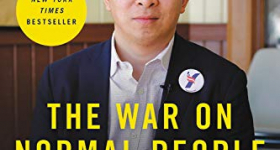Community members gather in Hayward, California, for a vigil for the victims of the shooting in Oak Creek, Wisconsin. (Credit: S. Nadia Hussain)
“Those who feel like they
can intimidate our fellow citizens to take out their anger don’t represent the
best of America. They represent the worst of humankind. And they should be
ashamed of that kind of behavior.”
On September 17, 2001, a mere 8 days after the 9/11 terrorist
attacks, President George W. Bush said these words in reference to the
terrorists who attacked the World Trade Center in New York. Ironically, 11 years
after that fateful day, these very words fit well to describe the brutal actions of a
perpetrator who shot and killed six worshippers and critically injured two others
at a Sikh temple (or Gurdwara) in Oak Creek, Wisconsin, in one of the deadliest
hate crimes in recent memory.
But the hate attacks did not stop there. Within the next two weeks
after the shooting, a mosque in Joplin, Missouri, burned down for the second
time in month. Hunks of pig flesh were thrown at a home where Muslims were
praying in Ontario, California. In Lombard, Illinois, a bottle of acid was thrown at an
Islamic school, while in Morton Grove, Illinois, a man shot an air rifle directly
at a Muslim education center.
According to the FBI statistics reported by the Muslim Public Affairs
Council, anti-Islamic incidents were the second least reported hate crimes
prior to 9/11, but following 9/11, they became the second highest. Hate
crimes in the United States increased 21 percent from 8,063 in 2000 to 9,730 in
2001. The most dramatic change was a 1,600 percent spike in the number of hate crimes against Muslims -- from 28 incidents in 2000 to 481
incidents in 2001.
The Southern Poverty Law Center highlights FBI statistics showing a
jump from 107 anti-Muslim hate crimes in 2009 to 160 hate crimes in 2010. This happened at the same time as a controversy over the building of an Islamic center in lower Manhattan, near the site of the World Trade Center attacks. Today, we could be experiencing another spike in incidents.
These statistics are a cause for concern, but what is even more troubling is
the political discourse that fuels the fear of Muslims in the United States.
Policies such as the Patriot Act, and more recently the National Defense
Authorization Act, have contributed to this environment, as have speeches and
stances taken by elected officials and candidates.
“Often these types of discrimination don’t happen in a vacuum,” said
Priya Murthy, the political director of South Asian Americans Leading Together
(SAALT), a non-profit advocacy group. "They are impacted by political rhetoric and policy. The
government plays a huge role in terms of influencing how policies are set and
politicians have a mouthpiece that a regular community member may not have, as
well as access to media that affects discourse. They have a responsibility to
not demonize and target some communities.”
Unfortunately, the demonization of Muslims and South Asians is
rampant, and attacks on Muslim communities by elected officials have become
commonplace. Only a month ago, Minnesota congresswoman and former
Republican presidential candidate Michele Bachmann, along with six other Republican
representatives, sent letters to five federal agencies alleging a “Muslim
Brotherhood conspiracy” within the US government. Illinois Congressman Joe
Walsh also recently stated in public that “there is a radical
strain of Islam in this country -– it’s not just over there –- trying to kill
Americans every week. It is a real threat, and it is a threat that is much more
at home now than it was after 9/11.”
Interestingly, the two hate crimes in Illinois occurred soon after
his speech. The amount of Islamophobic statements by elected officials have
become so prevalent that SAALT was compelled to release a report in 2010
called “From Macacas to Turban Toppers: The Rise in Xenophobic and Racist
Rhetoric in American Political Discourse.”
The issues go beyond political rhetoric. Airport screenings
have infamously become particularly problematic for members of Sikh and
Muslim communities to such a degree that the Sikh Coalition, a national civil rights organization for the Sikh
community, developed an app called “FlyRights” for those who think
they have been targeted. The app asks about a dozen questions, and submits
responses as official complaints to the Transportation Security Administration.
Clandestine spying operations have even been set up by the New York City police department to monitor Muslim
college students, according to media reports.
Zahra Billoo, the executive director of the Bay Area Chapter of the
Center for American Islamic Relations (CAIR), reflects on the connection
between xenophobic politics and acts of hate.
“These government actions and policies provide a way to justify
ignorance,” she said. “Time magazine reported that over 60 percent of Americans
have never met a Muslim, so you take these people and instill fear in them, and
you hold the real possibility of situations devolving into
violence.”
Priya Murthy of SAALT concurs. “This type of environment creates a
place where hate acts can culminate as it did at Oak Creek and as it continues
to do in recent hate attacks against mosques throughout the country,” she said.
“We may never know exactly what is happening in the perpetrators' minds but
Islamophobic policies and rhetoric sends the message that it is acceptable not
just for the government to treat Muslims, Sikhs and Arabs with fear and
discrimination, but for the general population to treat them in this way as
well.”
Although fear mongering and profiling has become the norm in this country
since 9/11, statistics have shown that many of these fears are unfounded and
exaggerated. According to FBI statistics from 1985-2005, only 6 percent
of terrorist attacks in the US were actually committed by Muslims.
Despite these numbers, suspicion and ignorance against Sikh, Muslim,
and Arab communities continue to run high.
“September 11 happened over 10 years ago,” said Manpreet Kalra,
founder and writer for kaurista.com and a Northern California Sikh community
leader. “It shouldn’t be taking over 10 years for the American population to
still not understand the difference between Sikhs and Muslims and to realize
that being Muslim does not mean that you are a terrorist.”
Kaur blames elected officials who have fanned the flames of anti-Muslim sentiment.
“As a public official, you are elected to represent your constituents,
and when you are selectively choosing what part of your constituency to
represent, it’s a red flag, it’s a problem.”
Yet through these challenges, Muslim and Sikhs have been resilient in forming a united
front against hate and descrimination, which would have been almost unthinkable 20 years ago.
“After 9/11, we have worked together because an attack against one of
us was an attack against all of us,” Zahra Billoo of CAIR said. “And there is
hope, because there are people from so many faiths who have stood up against
this act.”
Some political leaders, to their credit, have pushed for greater civil protections as well. Legislators like Representative John Garamendi (D-CA) are leading actions
to include civil rights statutes within the National Defense Authorization Act,
while US senators Dick Durbin (D-IL) and Ben Cardin (D-MD) have
pushed an “End Racial Profiling” bill that would prevent racial profiling from
being used as a national security measure.
CAIR calls on more Republicans to step up so that the effort against
hate crimes can be bipartisan.
“Elected officials need to stand up against Islamophobic
policies, not just Democratic officials, but Republican officials,” Billoo
said. “Our elected officials need to have the courage to stand up for the right
things, for the civil rights of people.”
Priya Murthy of SAALT believes incidents like the Oak Creek shooting strike at the very heart of what it means to be American.
“These kinds of incidents should serve as a wake up call to all
Americans that this is not the America we want,” Murthy said.
“We can be a better country. Our country is about inclusion, plurality,
diversity, and welcoming and supporting one another. We have to keep that going
and take a stand against hatred when it occurs so that we can all stand
together.”
***
S. Nadia
Hussain is a writer for Hyphen’s politics blog. She will be attending the
Democratic National Convention as an elected delegate.










Comments